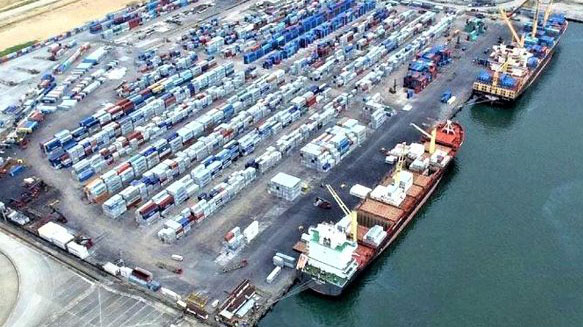Air Transportation in Nigeria is contributing at least $2.5 billion to the country’s Gross Domestic Product (GDP) yearly, the International Air Transport Association (IATA) has said.
Also, IATA, which revealed this in a report on the ‘Value of Air Transport to Nigeria’s economy,’ said that only one per cent of all passengers arriving in Nigeria from abroad continued their journey to a destination in another country.
The report also showed that the sector in Nigeria directly provides jobs for 39,500 people. IATA said that the information was based on data collected between 2023 and 2024.
The Regional Vice President for Africa and the Middle East, IATA, Kamil Alawadhi, said that the $2.5 billion contribution represented 0.7 per cent of the country’s GDP.
Alawadhi added that the average real airfare in Nigeria within the period under review had decreased by 43 per cent between 2011 and 2023, with the local population now needing to work 37.6 days to afford a plane ticket.
The report added that overall, 40 flights per 1,000 population were taken in 2023 in Nigeria.
Further breakdown of the data indicated that airlines support the sector with $449.7 million and 29,900 jobs, airports, Air Navigation Service providers (ANSPs) and civil manufacturing contribute $252.4 and provide 9,600 jobs, while tourism contributions supported by aviation stood at $454.1 million and 66,600 jobs to the sector.
Also, the global aviation body estimated the contribution of international tourists to Nigeria at $760.2 million yearly to the economy through the purchase of goods and services from local businesses.
Alawadhi said: “Aviation is a powerful engine for economic and social development. Nigeria’s National Day is a good opportunity to reflect on the immense value aviation brings to the country.
“Air transport supports over 217,000 jobs and contributes $2.5 billion to Nigeria’s GDP. With one of the fastest-growing populations in Africa and the world, and a predominantly young demographic, there is immense opportunity for future economic growth.”
According to IATA, aviation stimulates global trade and investment, enables labour and capital productivity improvements, boosts innovation, and fosters knowledge exchange.
It said that the movement of goods, enabled by the air transport industry, brings about improved economic outcomes via catalytic collaboration, specialisation, and more efficient allocation of resources across all sectors of the local and world economy.
Aviation, IATA said, plays a crucial role in, for example, enabling the development of dynamic and efficient supply chains, and in driving the growth in e-commerce. In times of crisis, the world relies on air cargo to provide humanitarian aid and emergency relief.
The report revealed further that 195,700 tonnes of air cargo were transported through Nigeria in 2023, thereby supporting the country’s total import and export volumes.
It also indicated that international air traffic accounted for 23 per cent of total Origin-Destination (O-D) departures for Nigeria in 2023, equal to 2.1 million passenger departures.
It emphasised that Europe was the largest international market for passenger flows from Nigeria, followed by Africa and North America.
Also, almost 780,700 passengers departed from Nigeria to a country in Europe (38 per cent of the total), 485,400 to another country in Africa (23 per cent of the total), and 373,000 to North America (18 per cent of the total).
The report further showed that since 2014, Nigeria’s international air connectivity index had decreased by 1.5 per cent within the Africa region and by 21 per cent with all other regions.






